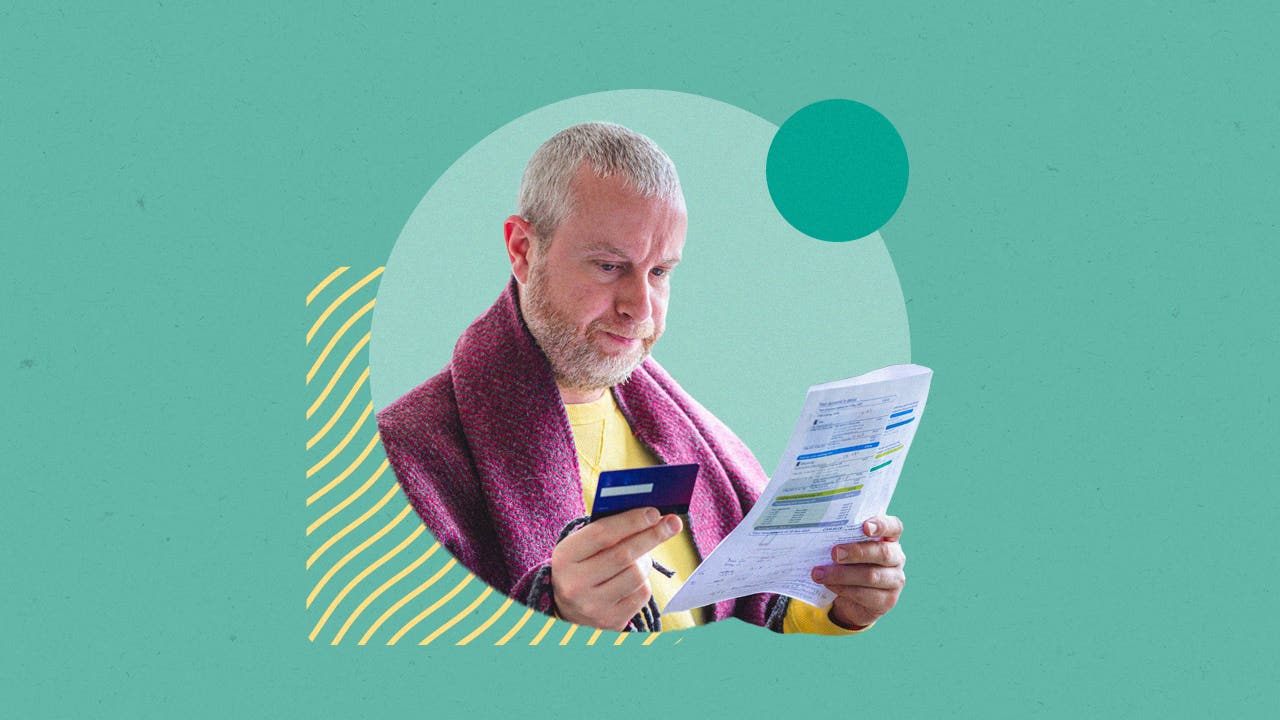Young people are more likely to repay credit card debt with extra work hours or a side hustle

Maybe it happened slowly — one month at a time, the charges on your credit card left you with a balance you couldn’t quite afford, so you made the minimum payment and vowed to pay the rest later. Or maybe it happened all at once — you needed to pay for that new refrigerator or medical bill and didn’t have enough cash, so you put it on your card.
However it happened, if you have credit card debt, you’re not alone. Over 2 in 5 cardholders (44 percent) carry a balance from month to month. And according to a January 2024 Bankrate survey, 36 percent of Gen Z and 42 percent of millennial cardholders say they are carrying a credit card balance. In a November 2023 survey, more than 1 in 3 (35 percent) Gen Zers who carry a balance on their credit card feel overwhelmed by debt. But how do they plan to pay it off? And are the kids alright?
There are ways for young people to join the majority of older generations who say they have a plan to pay down their credit card debt. Sure, it might include working more, but things like a budget and balance transfer card could also help you get on track.
Key insights on how younger generations are handling credit card debt
- Younger generations with credit card debt are more likely to try earning extra income to pay off credit card debt. Just over 1 in 4 Gen Zers (26 percent) and almost 1 in 3 millennials (30 percent) who have ever had credit card debt say they have ever worked extra hours or picked up a side hustle to pay it off. Only 1 in 5 Gen Xers (20 percent) and just over 1 in 8 Boomers (13 percent) say they have.
- The most popular credit card debt repayment strategy is cutting expenses. Thirty-five percent of all Americans who have ever had credit card debt say they have cut expenses to dedicate more money to credit card debt payoff.
- Gen Z is most likely to feel overwhelmed by credit card debt. Thirty-five percent of Gen Zers with credit card debt feel overwhelmed by their debt, 29 percent are worried they might not be able to make their minimum credit card payments at some point in the next six months and 24 percent say they don’t know how to make significant progress paying down their credit card debt.
Younger generations are working more to repay credit card debt, while all generations are cutting expenses
The most popular credit card debt repayment method for those who have ever had credit card debt across generations (35 percent) is cutting expenses to dedicate more money to debt payoff. It’s something you can start today — resisting the urge to buy that expensive new top or book that five-star hotel room. But it’s harder to cut back if most of your expenses are necessary. That’s when other repayment strategies might come into play.
Gen Zers and millennials who have ever had credit card debt are more likely to pay off debt by working extra hours or taking on a side hustle (26 and 30 percent, respectively) than other generations. In a separate survey from November 2023, 58 percent of Gen Z thought their personal financial situation will get better in 2024, which is more than any other generation. Of those Gen Zers, 43 percent attribute it to better spending habits and 39 percent to rising income.
Gen Z was also the most likely of all generations to name their main financial goal of 2024 as getting a higher paying job or an additional source of income (25 percent), as opposed to other options like saving more money for retirement (6 percent) or emergencies (10 percent).
On the other hand, members of Gen X who have ever had credit card debt are more likely to say they have ever applied for a balance transfer card (30 percent) or used some or all of their tax refund (30 percent) in addition to cutting expenses (40 percent) to pay off debt. And boomers who’ve had credit card debt at some point are more likely to have never used any of these strategies or any of the others tested (32 percent).
Gen Z feels overwhelmed by credit card debt
Even though more than half of Gen Z reported feeling optimistic about their finances this year, those with credit card debt also feel more overwhelmed by credit card debt than other generations. A November 2023 Bankrate survey showed that of those carrying a balance, 35 percent of Gen Z feels overwhelmed by credit card debt, compared to millennials (26 percent), Gen X (23 percent) and boomers (13 percent).
All the other generations put the most emphasis on having a plan to pay down credit card debt. But many Gen Z debt holders feel worried that they might not be able to make minimum credit card payments at some point in the next six months (29 percent) and don’t know how to make significant progress paying down their credit card debt (24 percent).
5 steps you can take today to ease the stress of credit card debt
Paying off credit card debt may feel daunting. But there are things you can do now to help reduce your anxiety and make a dent in your debt, starting with the following steps:
1. Build a budget
Trying to manage spending without a budget is like heading on a road trip without a map. It’s easy to get off track — not in a fun way, but in a way that can keep you from your destination and burn precious resources like money and time.
Creating a budget gives you a roadmap to help reach your goals. Start by balancing your income against your necessary expenses, including your housing costs, groceries and utilities. What’s left after those bills are paid is called your discretionary income. You can use your discretionary income for anything from fun money to savings to investments. And while it’s normal to spend some fun money on things like travel, going out or hobbies, it’s also important to make sure you’re not overspending. If you’re in debt, you can put some or all of your discretionary income toward paying it off each month.
Start today
2. Give your card issuer a call
If you feel that you’re in over your head with credit card debt, consider contacting your card issuer. Because credit cards are typically unsecured, issuers are motivated to get their money back — and they may be willing to work with you to make it happen. It could be possible to negotiate late fees, interest rates, the amount owed or a repayment plan.
“Credit card companies can, and often do, provide alternative repayment options,” the Consumer Financial Protection Bureau explains. “They depend on, among other factors, your income, how much you can afford to pay, and the amount you owe.”
Start today
3. Consider a balance transfer card
If you have a repayment plan, especially one that could be completed in 12 to 21 months, a balance transfer card can help you save on interest fees while you make repayments. Balance transfer cards typically offer a 0 percent intro APR for a set period, which buys you time to transfer your balance onto the new card and start paying it off.
Use Bankrate’s credit card balance transfer calculator to compare card options and see how long it will take to pay off your balance based on factors like the current interest rate and transfer fee.
Start today
4. Don’t deny your debt
Even though your growing debt might feel overwhelming, it’s important not to ignore it. Like an invasive plant in your backyard, debt can grow rapidly if not tended to. But regular uprooting (paying off the principal balance) and pruning (paying off interest) can keep debt from taking over your personal finances.
If you don’t have the resources to pay off your credit card balance now, at least try to make the minimum payments. It will help keep your credit score in good standing so that you can apply for future credit with better terms.
Start today
5. Continue with your repayment strategies
The repayment strategies listed above can all be effective ways to pay off debt. If you’re already working extra hours (or earning passive income), cutting expenses or devoting your tax refund to repay your balance, then you’re probably on the right track. With time, effort and responsible use, you can get on top of your credit card debt.
Start today
Methodology
-
Bankrate commissioned YouGov Plc to conduct the survey. All figures, unless otherwise stated, are from YouGov Plc.
January 2024 survey: Total sample size was 2,239 U.S. adults. Fieldwork was undertaken between January 24-26, 2024.
November 2023 survey: Total sample size was 2391 adults. Fieldwork was undertaken between 13th – 15th November 2023.
November 2023 survey: Total sample size was 2,350 U.S. adults, including 1,796 cardholders and 873 who carry a balance on their credit card(s). Fieldwork was undertaken between November 28-30, 2023.
The survey was carried out online and meets rigorous quality standards. It employed a non-probability-based sample using both quotas upfront during collection and then a weighting scheme on the back end designed and proven to provide nationally representative results.
Why we ask for feedback Your feedback helps us improve our content and services. It takes less than a minute to complete.
Your responses are anonymous and will only be used for improving our website.






